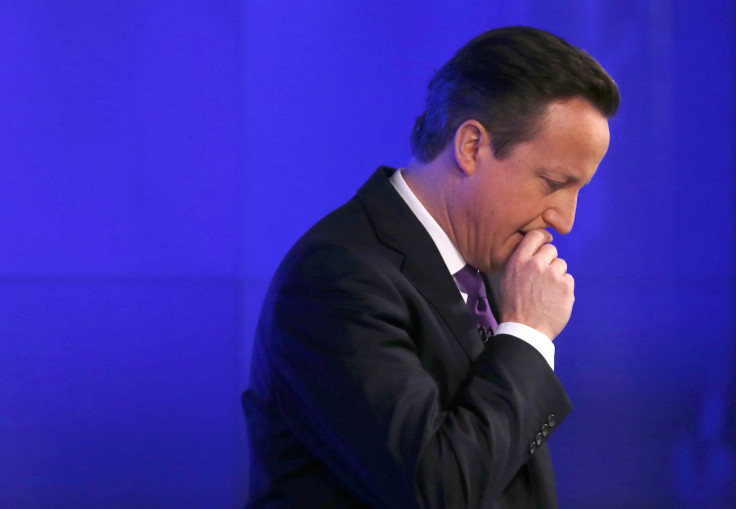Brexit Battle: Economy Won’t Dominate Debate Because Of Divide Between Small, Large Businesses

Now that the British government has set a June referendum on Britain’s membership in the European Union, you might expect to hear leaders push the economic argument for Britain to stay in the 28-nation bloc. But that argument may be the least effective from a political perspective.
While bigger companies might see the merits of staying in the EU, it’s a harder sell to smaller firms whose owners and employees will vote.
James Elles, who served as a Conservative, pro-EU member of the European parliament for 30 years, said the fissure in the business community complicates Cameron’s efforts to stress the economic consequences of leaving the EU. If you only feel the impact of Brussels-inspired rules, but don’t benefit from the free flow of goods and services across national boundaries, then a “Brexit,” as it’s become known, can seem appealing.
“Big companies trade, small companies don’t,” Elles said. “Small firms don’t see the importance of trade, but they do see the regulatory impact of the EU.”
So, Elles, said, Cameron is bound to focus on the non-economic aspects of continued EU membership, in particular the deal he cut with other EU nations to modify the terms of British membership.
As he kicked off a 4-month campaign to sell a new version of British membership in the European Union, British Prime Minister Cameron didn’t make the case that he’d enhanced the economic benefits of the bloc for Britain. He argued, in an interview with the BBC, that the deal satisfies the nationalist goals of British critics of the EU.
The agreement, reached at a summit in Brussels last week, is about “bringing powers back from Brussels,” getting out of the EU’s institutional goal of “ever-closer union” and putting restrictions on welfare payments to migrants.
“It gives Britain the chance to have the best of both worlds,” Cameron said.
Though polling has shown a slight advantage for the pro-EU camp, it took a hit this weekend as Boris Johnson, the mercurial and outspoken mayor of London, announced he favored leaving the EU. The opposition to Cameron, whose current job Johnson covets, gives critics of the European Union their most prominent voice to date.
Johnson’s announcement, after Cameron had wooed him extensively, helped spark a 2 percent decline in the value of the British pound Monday.
The Confederation of British Industry, dominated by larger companies, is a full-throated supporter of staying in the European Union. Its director general, Carolyn Fairbairn, said the issue is a clear and present issue for her members, especially now that the date for the referendum has been set.
"You are now seeing a number of companies recently that have had contingency plans [and] are debating important questions of what it means for their suppliers and their exports and so on," Fairbairn said.
Groups that have a broader membership of smaller firms are less unequivocal about the merits of leaving the EU. A survey from the Institute of Directors in 2014 found that a majority, though not an overwhelming one, wants to stay in the EU. But their caveat was that the bloc should reform employment law and energy policy.
The agreement Cameron struck didn’t greatly alter EU policy in either of those areas.
“We are in favor of staying in a reformed EU; there's no doubt about that. We are perhaps a little less certain than the Confederation of British Industry,” Simon Walker, director general of the Institute of Directors, told International Business Times last year. “Britain should be the leading force for deregulation inside the EU.”
Even Walker’s view underplays the extent to which small British businesses don’t have the stake in the EU that their larger counterparts do.
The institute’s members are “disproportionately oriented” toward the continental European market, according to a report by Allie Renison, head of Europe and trade policy at the group. But over 99 percent of British companies are small and medium-sized enterprises, and only 1 in 5 export, and not all of those to Europe.
However, even those companies that don’t export could be shooting themselves in the foot if their stakeholders vote for Brexit.
“The complexity and integrated nature of supply chains today means that many domestic-focused businesses who sell to international-facing clients could be impacted by disruption or potentially reduced orders attached to a negative change in the trading terms of the U.K.’s relationship with the EU,” Renison wrote.
Economists are virtually unanimous in arguing that leaving the EU would be an economic disaster for Britain. UniCredit estimates that an exit would cost Britain 6 percent of its GDP, the equivalent of a searing recession, even if spread out over several years. The advantages of Brexit, such as the end of contributions to the EU budget, would be “small beer” by comparison, according to UniCredit.
© Copyright IBTimes 2024. All rights reserved.











